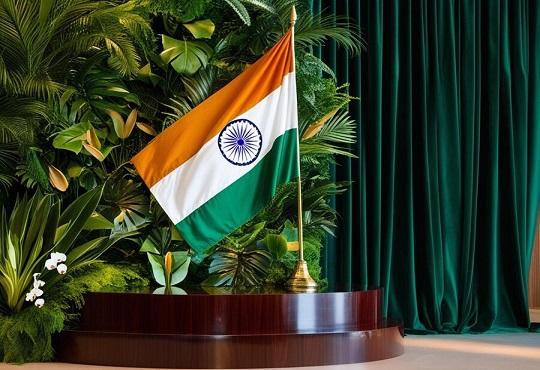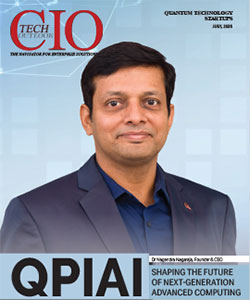India ready to share AI models with Global South: MeitY Secy
CIOTech Outlook Team | Friday, 25 July 2025, 11:01 IST

- India to share AI models with Global South, leveraging diverse language ecosystem.
- AI Kosh, Mission Bhashini, and Anuvadini drive multilingual AI innovation in India.
- Industry seeks historical data access, redefined “Make in India,” and research collaboration.
India is poised to share its artificial intelligence models with the Global South, announced S Krishnan, Secretary at the Ministry of Electronics and Information Technology, during FICCI’s Bhashantara 2025 conference. Highlighting India’s diverse language technology ecosystem, Krishnan noted its potential to spearhead global AI development, stating, “If you can do it in India, you can do it practically anywhere else in the world.”
This initiative stems from discussions with UN officials, who expressed interest in India’s collaborative AI approach, positioning the country as an alternative to other AI ecosystems with solutions tailored for multilingual, resource-constrained environments.
Under the India AI Mission, the government has launched AI Kosh, a data repository with over 400 databases to support researchers and entrepreneurs in developing multilingual AI solutions. Key programs like Mission Bhashini and Anuvadini focus on preserving regional dialects alongside major languages.
Also Read: Intel Cutoffs Workforce, Shifts Strategy under New CEO
India also has traditional knowledge that it is computerizing, like Ayurvedic books and manuscripts of history in order to create data sets in healthcare and research, which is can be used around the world. India is the only country that has the multi-stakeholder approach; the other countries have either a state or private funded institutes with no role to play by academia and industry, along with research institutions.
Industry leaders at the conference called for enhanced collaboration. Harsh Dhand, Google’s Research and AI Partnerships APAC lead and Co-Chair of FICCI’s Multilingual Internet Committee, urged the government to unlock historical data from institutions like Prasar Bharathi, redefine “Make in India” as “Made in India by India for India,” and connect research entities to optimize resources. He also emphasized industry contributions through technology access, seed funding, and skilling initiatives.
The conference underscored India’s strides in democratizing internet access via local language domain names, now available in all official Indian languages. Ajay Data, Chairman of FICCI’s Multilingual Internet Committee, highlighted the commercial potential, given that over 6 billion people globally do not speak English as their primary language, and India hosts 19,500 languages and dialects. Sandeep Nulkar, Co-Chair of the committee, concluded, “We are mobilizing around the urgency of a multilingual internet, addressing demographic, developmental, and economic perspectives.”




